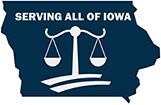Last Updated: 5/11/2023
There are two typical ways to prove an Iowa dramshop claim. A person is served too much alcohol at a bar or restaurant, leaves the establishment while drunk, is involved in a car accident, and is subsequently charged with OWI (operating a vehicle while intoxicated).
The other occurs when a drunk bar patron assaults one or more people at the bar. Iowa’s Dramshop Law holds the bar owner, liquor licensee, or permittee (bartender or wait person) who does either of the following;
- Sells and serves alcohol to an intoxicated person when they knew (or should have “reasonably” known) the person was intoxicated
- Sells and serves the person to a point where the owner, bartender, wait staff knew or should have reasonably known the person would become drunk if they did not stop serving the patron.
Bars and other establishments licensed to serve liquor are legally required to exercise reasonable care to detect signs of actual (or suspected) intoxication in their patrons. If their employees identify someone who’s had too much to drink, they cannot serve them any more alcohol: [Iowa Code § 123.92].
This is known as a Dramshop Law, and many states have adopted them. Virtually all of these establishments are also required by law to have dramshop liability insurance to pay the damages to the injured victims of their intoxicated patrons.
“Iowa’s Dramshop Statute is intended to restrain bars and restaurants from selling ‘excess liquor’ to their patrons;” according to The Iowa Supreme Court. Several cases before it have produced rulings that the state’s dramshop law does not require that the plaintiff prove that the intoxicated person who injured them consumed the alcohol.
The Act’s language says that alcoholic beverages that are, "sold and served for consumption on the seller's premises only,” apply. This means that retail companies such as grocery stores and other liquor licensees which sell packaged liquor – rather than “liquor by the drink” – are not subject to the law because they are not licensed to serve alcohol at their business; only sell alcohol which is consumed at another location.
All civil damages are available in a dramshop case.
- Medical bills
- Lost wages
- Damaged property
- Pain and suffering
- Wrongful death
Can a person who was made intoxicated sue the bar owner in an Iowa dramshop case?
Only those who were injured by the intoxicated patron (referred to as the “second party”) can sue the bar or restaurant establishment. First parties (the intoxicated person) may not.
Are private citizens who host a party liable under Iowa’s dramshop laws?
The law applies only to vendors who are licensed to sell alcohol in restaurants and bars. It does not apply to “social hosts” who serve alcohol at parties or other private functions: [Iowa Code § 123.49].
Contact Walker, Billingsley & Bair to get more information on filing a dramshop claim in Iowa at (515) 440-2852.


